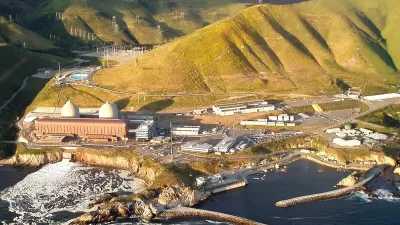The DoE recently updated its energy-efficiency standards for microwaves. Big deal, right? Actually, observes Brad Plumer, by upping the 'social cost of carbon' used to calculate the benefits of the rule, the government has made a big shift.
"Last week, the Department of Energy announced a little-noticed update to its energy-efficiency standards for microwaves, requiring newer models to use less power in stand-by mode," reports Plumer. "But there was a surprise buried in the fine print: The agency is now using a higher figure for the 'social cost of carbon' in calculating the benefits of the rule. Instead of assuming that the harm caused by carbon-dioxide emissions comes to $22 per ton in 2013, regulators are now using a figure [PDF] of about $36 per ton."
"That’s a big shift — the Obama administration is effectively saying that climate change will be more damaging than previously estimated, in part because of the impacts of future sea-level rise," Plumer explains. "And that means U.S. government agencies could, in theory, justify even stricter regulations to curb greenhouse-gas emissions."
"This might sound like nitpicking. But seeing as how much of the Obama administration’s climate-change agenda will likely be carried out through the Environmental Protection Agency, this small tweak could make a big difference in the years ahead."
FULL STORY: An obscure new rule on microwaves can tell us a lot about Obama’s climate policies

Maui's Vacation Rental Debate Turns Ugly
Verbal attacks, misinformation campaigns and fistfights plague a high-stakes debate to convert thousands of vacation rentals into long-term housing.

Planetizen Federal Action Tracker
A weekly monitor of how Trump’s orders and actions are impacting planners and planning in America.

San Francisco Suspends Traffic Calming Amidst Record Deaths
Citing “a challenging fiscal landscape,” the city will cease the program on the heels of 42 traffic deaths, including 24 pedestrians.

Defunct Pittsburgh Power Plant to Become Residential Tower
A decommissioned steam heat plant will be redeveloped into almost 100 affordable housing units.

Trump Prompts Restructuring of Transportation Research Board in “Unprecedented Overreach”
The TRB has eliminated more than half of its committees including those focused on climate, equity, and cities.

Amtrak Rolls Out New Orleans to Alabama “Mardi Gras” Train
The new service will operate morning and evening departures between Mobile and New Orleans.
Urban Design for Planners 1: Software Tools
This six-course series explores essential urban design concepts using open source software and equips planners with the tools they need to participate fully in the urban design process.
Planning for Universal Design
Learn the tools for implementing Universal Design in planning regulations.
Heyer Gruel & Associates PA
JM Goldson LLC
Custer County Colorado
City of Camden Redevelopment Agency
City of Astoria
Transportation Research & Education Center (TREC) at Portland State University
Jefferson Parish Government
Camden Redevelopment Agency
City of Claremont




























